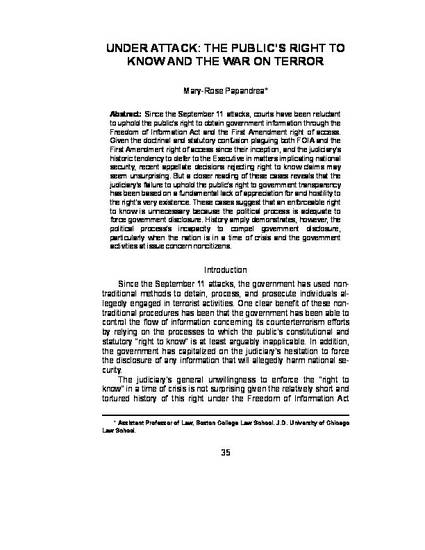
Since the September 11 attacks, courts have been reluctant to uphold the public’s right to obtain government information through the Freedom of Information Act and the First Amendment right of access. Given the doctrinal and statutory confusion plaguing both FOIA and the First Amendment right of access since their inception, and the judiciary’s historic tendency to defer to the Executive in matters implicating national security, recent appellate decisions rejecting right to know claims may seem unsurprising. But a closer reading of these cases reveals that the judiciary’s failure to uphold the public’s right to government transparency has been based on a fundamental lack of appreciation for and hostility to the right’s very existence. These cases suggest that an enforceable right to know is unnecessary because the political process is adequate to force government disclosure. History amply demonstrates, however, the political process’s incapacity to compel government disclosure, particularly when the nation is in a time of crisis and the government activities at issue concern noncitizens.
Available at: http://works.bepress.com/mary-rose_papandrea/1/
